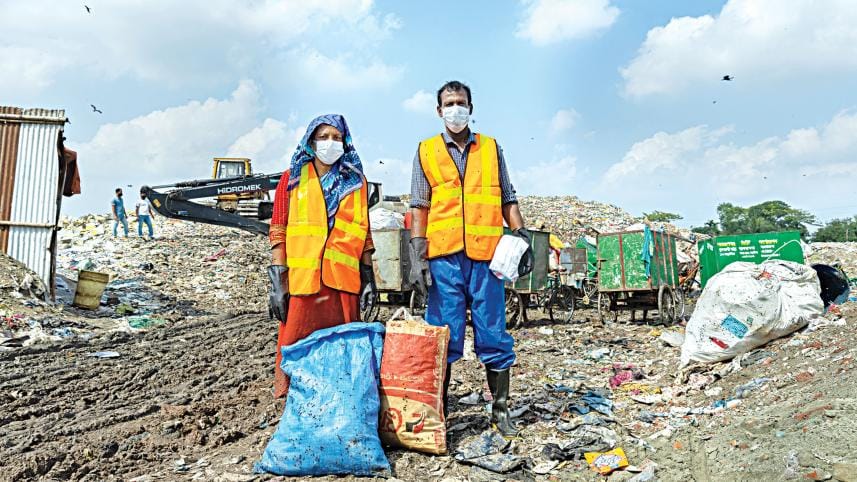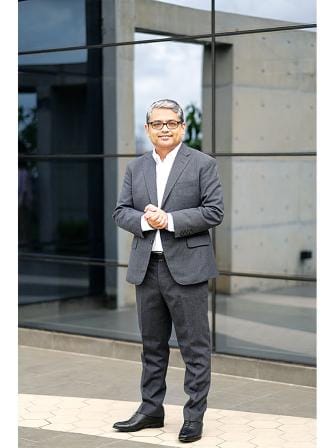Sustainability goes mainstream: Unilever Bangladesh shows the way

As the world becomes increasingly aware of the negative impacts of traditional business practices on the environment and society, corporations are reevaluating their purpose and goals. Gone are the days when the sole focus was on maximising profits at any cost. Today, companies are increasingly recognising the benefits of incorporating sustainability into their operations and strategies. A prime example of this is Unilever Bangladesh, a leader in the movement towards sustainable business practices. By placing sustainability at the core of the business, the company is not only doing its part to address pressing environmental and social issues, but it is also positioning itself for long-term success and building positive relationships with stakeholders.
"Our strategy is centered around making sustainable business practices the norm. We define it by our motto, 'Brands with purpose grow, companies with purpose last, and people with purpose thrive'," said Zaved Akhtar, CEO and Managing Director of Unilever Bangladesh at the CXO Summit 2022 that was held on December 3, 2022.
Unilever Bangladesh has made significant progress in incorporating sustainability into all aspects of their value chain, as demonstrated by their commitment to achieving net zero carbon emissions by 2030, and collecting more plastic than they produce by 2025. The company has implemented various measures to reduce energy consumption and carbon emissions within its operations, as well as reducing water consumption (412 million litres since 2020) and waste generated from plastic. These efforts have resulted in the equivalent of planting 150,252 mature trees. In addition, Unilever Bangladesh has created a more carbon-neutral production zone, further demonstrating their commitment to sustainability.

Unilever Bangladesh partnered with the United Nations Development Programme (UNDP) and Narayanganj City Corporation and piloted a project called 'Plastic Waste Management: Building Circular Cities,' which aimed to create a plastic-neutral environment in Narayanganj City. The project focuses on finding a circular economic model for plastic waste, particularly in relation to flexible packaging and single-use plastics (SUP). To date, the initiative has collected approximately 482 tonnes of flexible plastic waste and SUP from homes and the environment in Narayanganj City. The project has also been expanded to Chattogram with a local NGO, Young Power in Social Action (YPSA), and in partnership with the Chattogram City Corporation. It is showing promising results in managing plastic waste in the port city.
According to Zaved, the project has been successful in educating households on how to manage plastic waste and create a sustainable ecosystem for its collection. The project has also explored various models for plastic collection, including household, waste picker, and community-based approaches.
"This year, our sustainability team will recover 40% of the plastic that we produce; next year, it will be 100%," he added while talking about the plastic footprint.
Zaved also believes that great brands are made by rooting them in a purpose, which is reflected in Unilever Bangladesh's Dove Self-Esteem Project (DSEP) in partnership with Plan International Bangladesh. The brand worked with teachers and parents apart from female students.
"I have learned to distinguish what to say and what not to say in front of my children. After all, they will learn from me," says Marufa Begum, a parent. Globally, Dove is working on this project to educate more than 50 million children about self-esteem by 2030, as they believe children who grow up with self-esteem can ensure a beautiful future.
Unilever Bangladesh has a number of notable projects in addition to the initiatives mentioned above. These include the Lifebuoy Friendship Hospital, a floating hospital on the banks of the Jamuna river that provides healthcare to marginalised communities in the char areas, and Domex's efforts to promote safe sanitation practices.
"Unilever Bangladesh has been educating people about the importance of handwashing for over a decade. According to an empirical study, handwashing was correlated with a reduction in diarrheal instances and child mortality below the age of five. We could see the positive impact of this practice," said Zaved Akhtar.
He added that Unilever Bangladesh is working on equipping more than a million youth with skills by 2030 and propelling this initiative across the education and business competition programmes.
"We believe that when sustainability is at the core of your business strategy, you can actually grow the business", says the CEO & MD of Unilever Bangladesh.
With the core principle, "What is good for Bangladesh has always been good for Unilever", the company strives to rebuild the world in a sustainable way. From ensuring eco-friendly business strategies to strengthening the building blocks of the nation- the youth, Unilever Bangladesh is pulling out all the stops to make Bangladesh better socially and environmentally.



 For all latest news, follow The Daily Star's Google News channel.
For all latest news, follow The Daily Star's Google News channel.
Comments